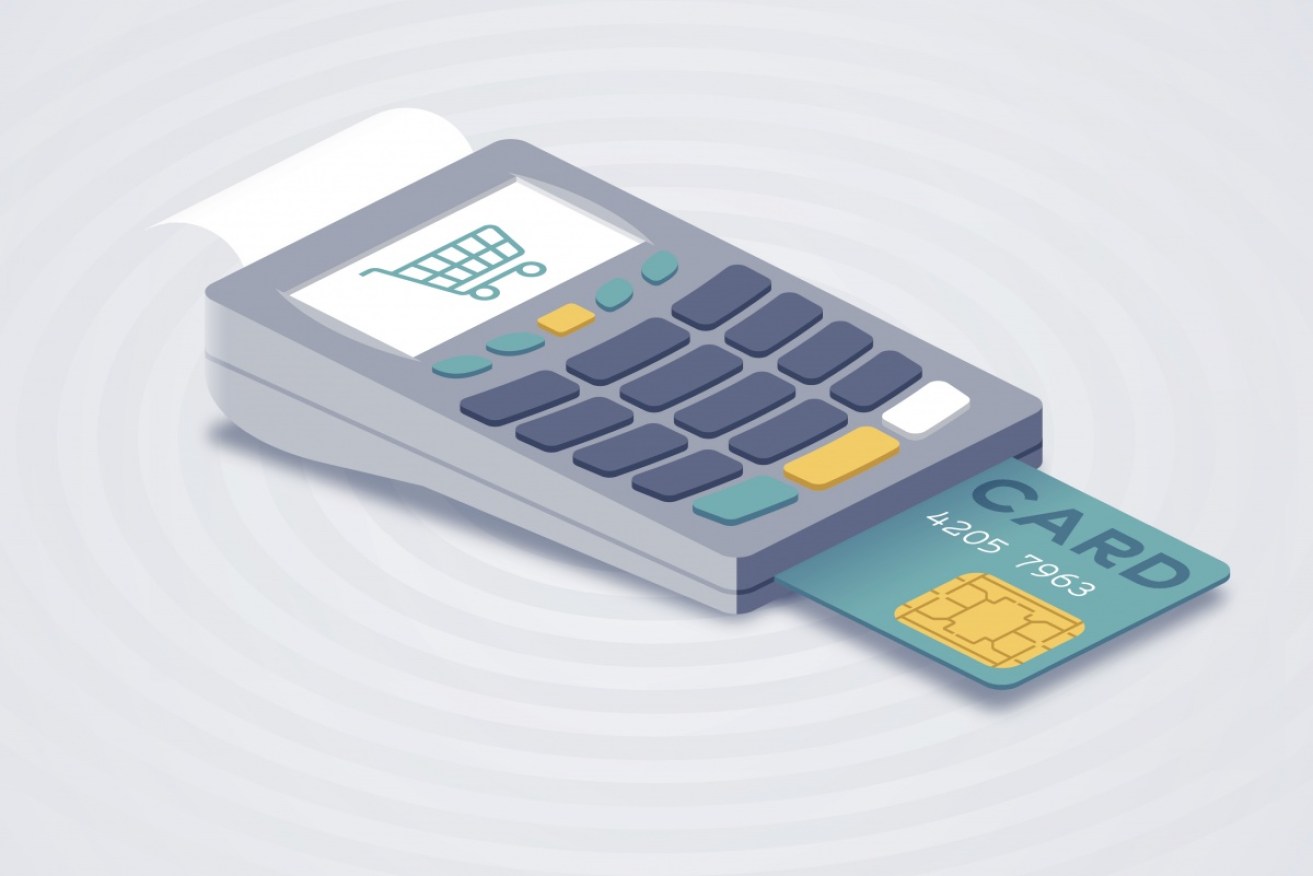What you need to know about the new credit card law

The whole system will soon be faster and simpler. Photo: Getty
Big companies, like airlines and taxis, are banned from slugging consumers with excessive credit and debit card fees from Thursday.
The regulation is aimed at ensuring that Australians are no longer charged more than it actually costs retailers to accept the cards.
The ACCC, which is getting a boost in funding to enforce the ban, said the move is a “regulatory backlash” against big companies that have tried to “push the boundaries”.
“Consumers have been complaining about this for some time. The government has listened to those complaints and changed the law,” ACCC chairman Rod Sims told the ABC.
Qantas, Virgin, Tigerair and Jetstar, some of the airlines singled out for complaints in recent years, have replaced their flat fees with percentage fees in response.
For example, Qantas customers paying by credit card will be charged a 1.3 per cent fee, rather than the current flat fee of $7. The company said this would work out to be $2 cheaper for the average fare of $400.
How does the ban work?
The ban applies to surcharges imposed on credit and debit card payments by retailers. These fees are a way for merchants to cover the ‘interchange fees’ imposed by the big banks that issue the credit and debit cards we use.
(While our cards carry the ‘Visa’, ‘MasterCard’ and ‘American Express’ brands, it is actually the banks that issue the cards. Part of the ‘interchange fee’ is what the banks pay to these companies for the use of their brand).
There is no hard and fast definition of “excessive”, but as a guide the Reserve Bank says debit cards usually cost 0.5 per cent of the transaction to process, and credit cards 1.5 and 3 per cent. Retailers cannot charge more than these costs.
Who does the ban apply to?
The reform is aimed primarily at the airlines and the taxi industry. The Financial System Inquiry (Murray review) in 2014 received hundreds of submissions complaining about card fees in these industries.

Struggling families could benefit. Photo: Getty
For now, the rule only applies to large retailers. By definition, these are businesses like Qantas which, at 30 June 2015, met two of the three following criteria: consolidated gross revenue of $25m or more; consolidated gross assets of $12.5m or more; and 50 employees or more.
Small retailers have until 1 September 2017 because the Reserve Bank thought they were less likely to excessively surcharge and more likely to struggle to understand the ban. So don’t expect any change at your local fish and chip shop or corner store.
The ban may come as a relief for many Australians families who seem increasingly reliant on plastic. More than half (59 per cent) of parents say they rely on credit cards to pay for basic needs, according to a new Galaxy survey of 1,000 people commissioned by debt solution company Fox Symes.
Is there a catch?
Possibly. Some critics claim that consumers could face other fees as banks look to make up for lost revenue.

The counterview is that fees will crop up in other areas. Photo: Getty
Back in May, MasterCard warned this could happen. “We have seen in the past that consumers are at a loss as financial institutions look to make up through other fees,” a spokesman told AAP.
A spokesman for the Surcharge Free campaign, backed by American Express, also warned the regulation could be a “green light” for businesses previously wary of surcharging.
“There could be a new wave of merchants of one sort or another who either lift their surcharge up to what is the signalled and permitted spread by the RBA, or actually those who surcharge for the first time,” Surcharge Free spokesman Christopher Zinn told The New Daily.
Why not outlaw surcharges altogether?
As its name suggests, the Surcharge Free campaign is pushing for retailers to go beyond the ban and remove surcharges entirely.
“It really affects the customer’s experience,” Mr Zinn said. “What businesses might get back in a surcharge is overwhelmed by what they enjoy in loyalty and positive customer engagement.”
Because the campaign is supported by Amex, the highest-fee card, consumer group CHOICE said we should treat its message with caution.

Big businesses will be the first to comply with changes. Photo: Getty
The Reserve Bank supports surcharges. In a conclusions paper, it found that surcharges are “an important mechanism” because they allow merchants to signal the cost of different payment choices and to pass these costs onto consumers.
“The outcome is that merchants are able to set prices for goods and services lower than would be the case if surcharging was prohibited, and the extent to which users of lower-cost payment methods subsidise users of higher-cost methods is reduced.”
In plain language, this means users of low-cost cards don’t end up shouldering the burden of higher-cost cards like American Express – which are more expensive because American Express provides expensive rewards programs for wealthier Australians.
CHOICE spokesman Tom Godfrey said the consumer group opposes the abolition of surcharges for this exact reason. “It would just disguise the cost of more expensive card providers like Amex. And effectively a system like that would see all consumers subsidising very wealthy people with expensive credit cards. We think that’s a pretty poor deal.”








